Software for construction management – The construction industry, known for its complexity and demanding timelines, is undergoing a significant digital transformation. Central to this shift is the adoption of construction management software, a suite of tools designed to optimize every aspect of a project, from planning and budgeting to execution and completion. This comprehensive guide delves into the world of construction management software, exploring its features, benefits, and how it can revolutionize your construction processes.

Source: constructioners.com
Understanding the Need for Construction Management Software
Traditional construction methods often rely on manual processes, spreadsheets, and paper-based documentation. This approach can lead to several challenges:
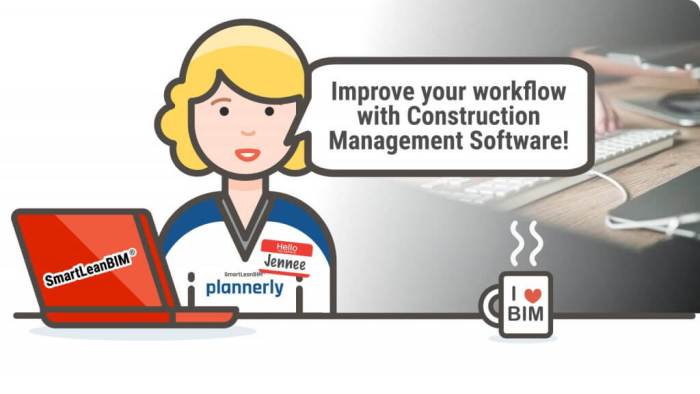
Source: plannerly.com
- Inefficient Communication: Delays and misunderstandings often arise from poor communication between stakeholders.
- Inaccurate Cost Estimation: Manual calculations can lead to inaccurate cost estimations, resulting in budget overruns.
- Lack of Real-time Visibility: Limited access to real-time project data hinders effective monitoring and control.
- Difficulty in Tracking Progress: Tracking progress and identifying potential delays becomes challenging without centralized data.
- Increased Risk of Errors: Manual data entry and management increase the risk of human errors.
Construction management software addresses these challenges by providing a centralized platform for managing all aspects of a project. This allows for better collaboration, improved accuracy, enhanced visibility, and ultimately, more successful project delivery.
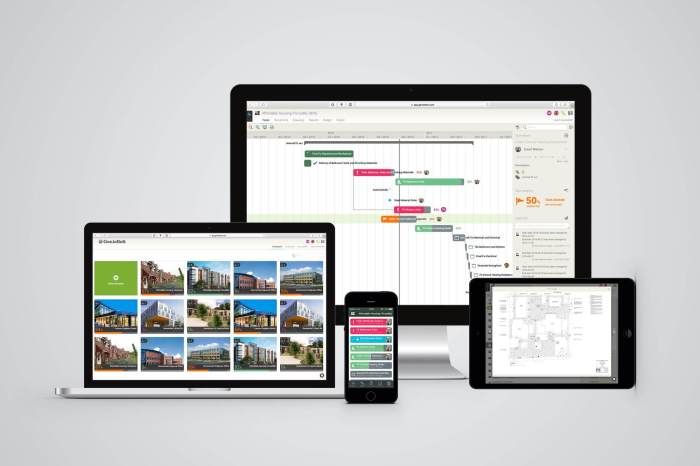
Source: letsbuild.com
Key Features of Construction Management Software
Modern construction management software offers a wide array of features tailored to meet the specific needs of construction projects. These features often include:
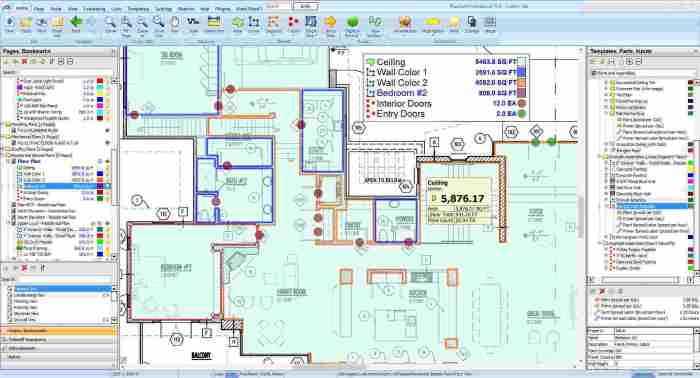
Source: amazonaws.com
Project Planning & Scheduling, Software for construction management
- Gantt Charts: Visual representation of project timelines, tasks, and dependencies.
- Critical Path Method (CPM): Identification of critical tasks impacting project completion.
- Resource Allocation: Efficient assignment of resources (labor, equipment, materials) to tasks.
- Progress Tracking: Real-time monitoring of task progress and identification of potential delays.
Cost Management & Budgeting
- Budgeting & Forecasting: Creation and management of project budgets, with tools for forecasting and variance analysis.
- Expense Tracking: Automated tracking of project expenses, minimizing manual data entry.
- Invoice Management: Streamlined processing of invoices and payments.
- Financial Reporting: Generation of comprehensive financial reports for stakeholders.
Document Management & Collaboration
- Centralized Document Repository: Secure storage and easy access to all project documents.
- Version Control: Tracking changes to documents and ensuring everyone works with the latest version.
- Collaboration Tools: Facilitating communication and collaboration among team members and stakeholders.
- Real-time Updates: Ensuring all stakeholders have access to the most current information.
Field Management & Reporting
- Daily Reports: Automated generation of daily reports on progress, issues, and changes.
- Time & Attendance Tracking: Accurate tracking of employee work hours.
- Equipment Management: Tracking equipment usage, maintenance, and location.
- Safety Management: Tools for managing safety procedures and reporting incidents.
Choosing the Right Construction Management Software
Selecting the appropriate software depends on various factors, including project size, budget, team size, and specific needs. Consider these aspects when making your decision:
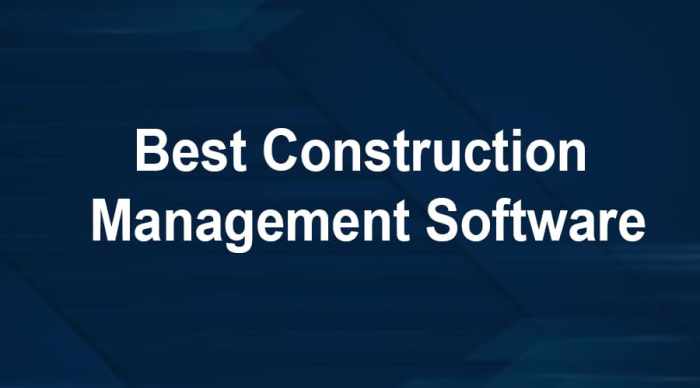
Source: pmstudycircle.com
- Scalability: Ensure the software can adapt to your growing needs.
- Integration Capabilities: Check for integration with other software used by your team.
- User-Friendliness: Choose software with an intuitive interface and easy-to-use features.
- Customer Support: Look for reliable customer support to assist with any issues.
- Pricing Model: Evaluate different pricing models (subscription, one-time purchase) to find the best fit for your budget.
Benefits of Using Construction Management Software
Implementing construction management software offers numerous benefits, leading to increased efficiency, reduced costs, and improved project outcomes:
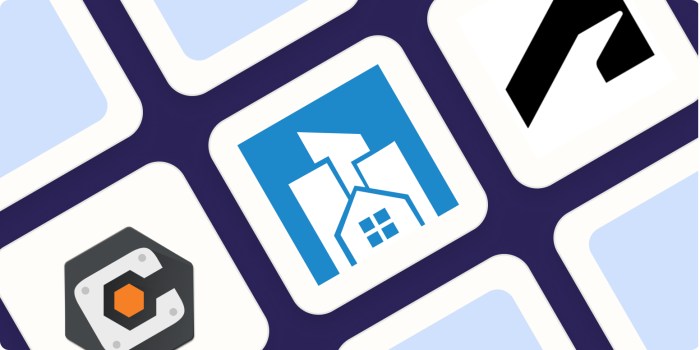
Source: ctfassets.net
- Improved Project Visibility: Real-time data provides a clear overview of project progress.
- Enhanced Collaboration: Streamlined communication and collaboration among team members.
- Reduced Costs: Optimized resource allocation and reduced errors lead to cost savings.
- Better Risk Management: Early identification and mitigation of potential risks.
- Increased Productivity: Automation of tasks and streamlined workflows enhance productivity.
- Improved Accuracy: Reduced manual data entry minimizes errors and improves accuracy.
- Better Decision Making: Data-driven insights support informed decision-making.
Examples of Popular Construction Management Software
Several reputable software solutions cater to the needs of construction professionals. Some popular options include Procore, Autodesk BIM 360, PlanGrid, Buildertrend, and CoConstruct. Each platform offers a unique set of features and capabilities, so it’s essential to research and compare options before making a selection.
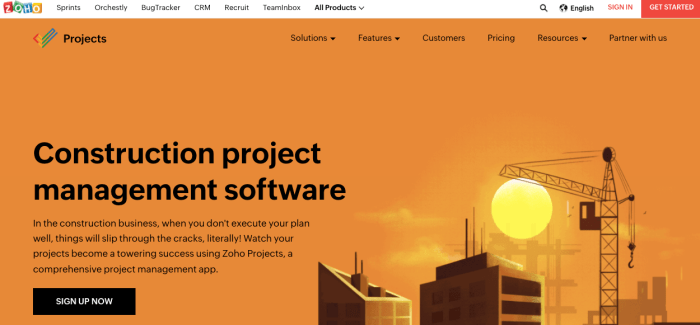
Source: clickup.com
Frequently Asked Questions (FAQs)
- Q: What is the cost of construction management software? A: The cost varies depending on the software, features, and number of users. Some offer subscription-based models, while others have one-time purchase options.
- Q: Is construction management software difficult to learn? A: Most modern software solutions are designed with user-friendliness in mind. Many offer training resources and tutorials to help users get started.
- Q: Can construction management software integrate with other software? A: Many platforms offer integration capabilities with other commonly used software, such as accounting software and project management tools.
- Q: What are the security measures in place for construction management software? A: Reputable software providers implement robust security measures to protect sensitive project data, including encryption and access controls.
- Q: How can I choose the right construction management software for my business? A: Consider your project size, budget, team size, and specific needs. Research different platforms, compare features, and read reviews before making a decision.
Conclusion: Software For Construction Management
Construction management software is no longer a luxury but a necessity for businesses seeking to thrive in today’s competitive construction landscape. By leveraging the power of technology, construction companies can optimize their processes, improve efficiency, reduce costs, and ultimately deliver successful projects on time and within budget. Choosing the right software is crucial, so take the time to research and select a solution that aligns with your specific needs and goals.
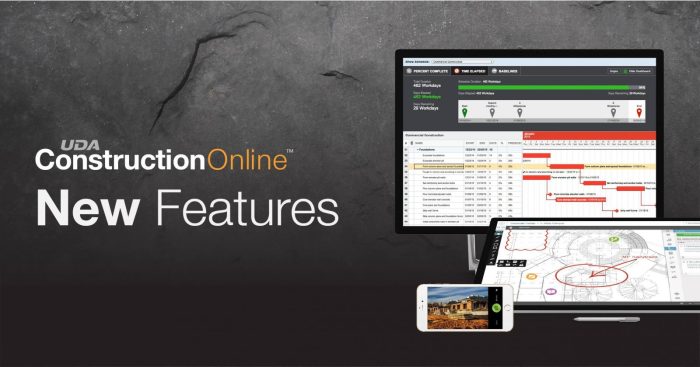
Source: allthatsaas.com
References
Call to Action
Ready to transform your construction projects? Explore the leading construction management software solutions available today and experience the benefits of streamlined workflows, improved collaboration, and enhanced project outcomes. Start your free trial or request a demo now!

Source: appmvn.com
Commonly Asked Questions
What types of projects benefit most from construction management software?
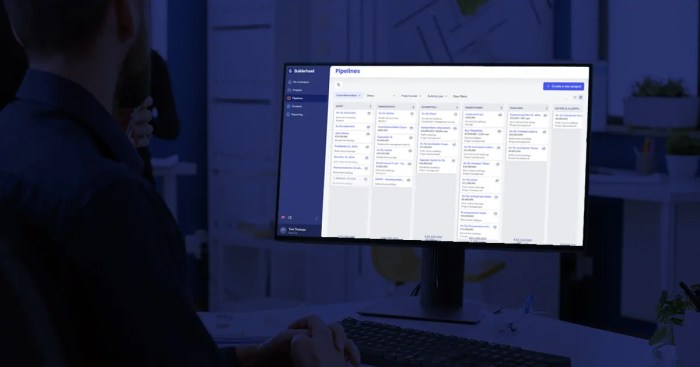
Source: builderhead.com
Projects of all sizes can benefit, but larger, more complex projects with multiple stakeholders and intricate schedules see the most significant improvements in efficiency and cost control.

Source: comparecamp.com
How much does construction management software typically cost?

Source: org.uk
Pricing varies widely depending on the features, scale, and vendor. Expect a range from subscription-based models with monthly fees to larger upfront investments for more comprehensive systems. Many vendors offer free trials or demos.
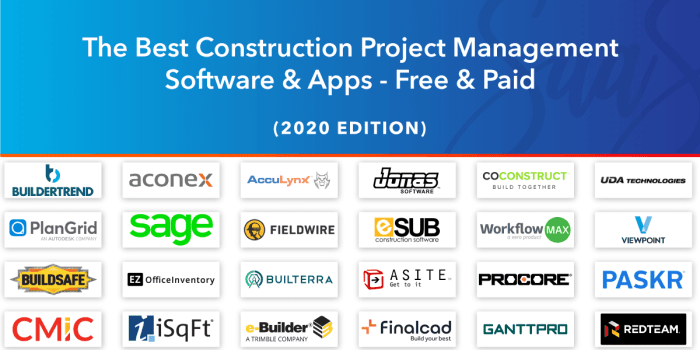
Source: allthatsaas.com
What are the key features to look for when choosing software?
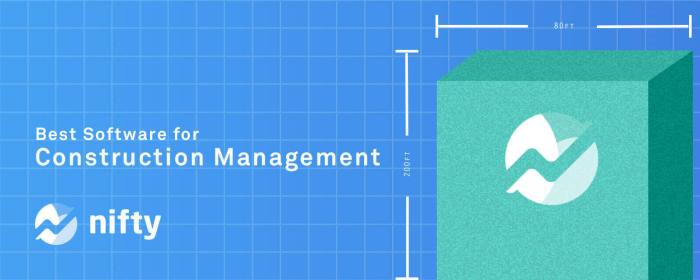
Source: niftypm.com
Essential features include scheduling, budgeting, document management, communication tools, and reporting capabilities. Consider integration with other software used by your team and the level of customization offered.

Source: wojohq.com
How can I ensure my team adopts the new software effectively?
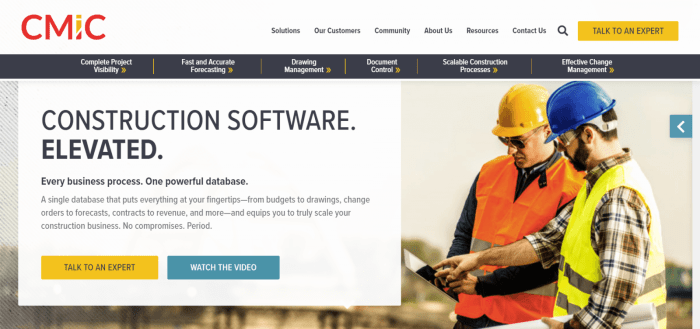
Source: allthatsaas.com
Thorough training and ongoing support are crucial. Start with a pilot program, gather feedback, and tailor the implementation process to your team’s specific needs and workflow.
